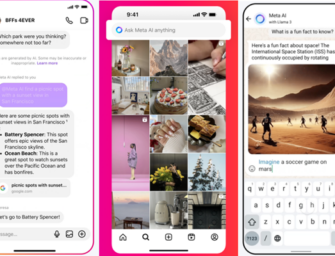Amazon Smart Speaker Market Share Falls to 53% in 2019 with Google The Biggest Beneficiary Rising to 31%, Sonos Also Moves Up
- Amazon maintains the largest installed base of smart speakers in the U.S. at 53% in January 2020, down from 61% in 2019
- Google smart speaker relative market share rose in 2019 from 24% to 31%
- Sonos more than doubled its relative market share rising from 2.2% to 4.7%
New data released today show that Amazon still commands the largest installed base of U.S. smart speaker users, but its lead continues to decline. A national consumer survey of over 1,000 U.S. adults found that Amazon Echo smart speakers commanded a 53% relative market share compared to about 31% for Google Nest Home. The results show a strong increase for Google smart speakers rising from about 24% in January 2019. The data is from a new report released today by Voicebot Research: Smart Speaker Consumer Adoption Report 2020.

Sonos also had notable gains in relative market share for smart speaker installed base rising from just 2.2% in January 2019 and 4.7% a year later. Apple merely held its market share steady over the past year settling at 2.8% in January 2020. You can download the executive summary or full report by clicking the button below. The full report includes over 30 charts and 30 pages of analysis.
Download NowAmazon Smart Speaker Market Share Falls
Because Amazon invented the smart speaker category its market share was destined to fall from 100% back in 2014 as new competitors entered the market. The real competition began in late 2016 when Google launched its Home smart speaker. A year later in January 2018, Amazon still commanded about 72% of the installed base market share and Google debuted in our tracker at 18.4%. Apple HomePod had not even shipped at that point and Sonos One with 2.6% was among the few independent offerings.
Amazon has been a smart speaker merchandising juggernaut. Despite its market share decline, the company added nearly six million new users in 2019 as well as selling second and third devices for the homes of existing customers. However, there must be some concern in Seattle that installed base market share has fallen from 72% to 53% in two years.
In each of the last two years, Voicebot data show that Google added more new smart speaker uses than Amazon. Granted, Google has benefitted from sales into Amazon Echo households as smart speaker owners are increasingly trying out devices from more than one brand. Amazon has less potential to benefit from that given the smaller installed base of its rivals. In addition, Google is clearly benefitting from several mass giveaways at events ranging from CES in Las Vegas to NBA games. All of these efforts have had the intended effect of increasing Google’s installed base of smart speaker users.
Learn more about how the smart speaker market is evolving by downloading the report here.
Follow @bretkinsella Follow @voicebotai
Nearly 90 Million U.S. Adults Have Smart Speakers, Adoption Now Exceeds One-Third of Consumers









